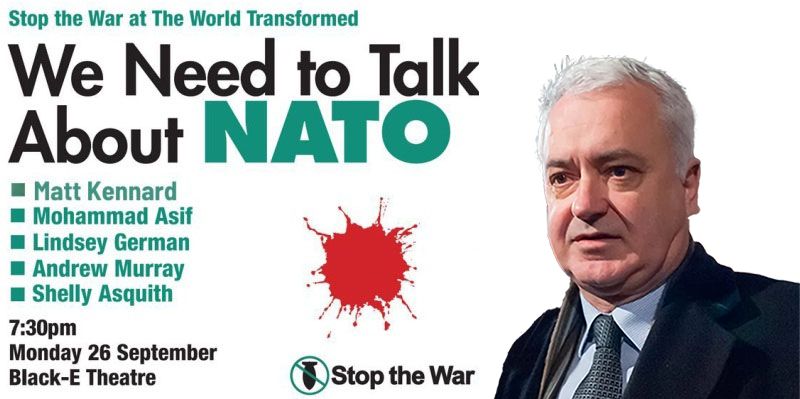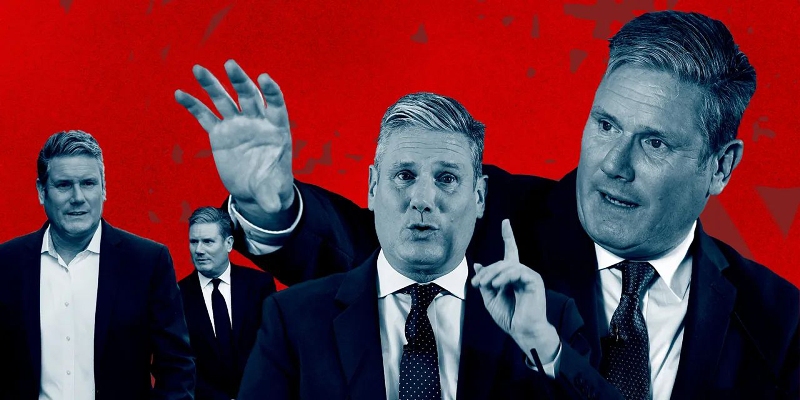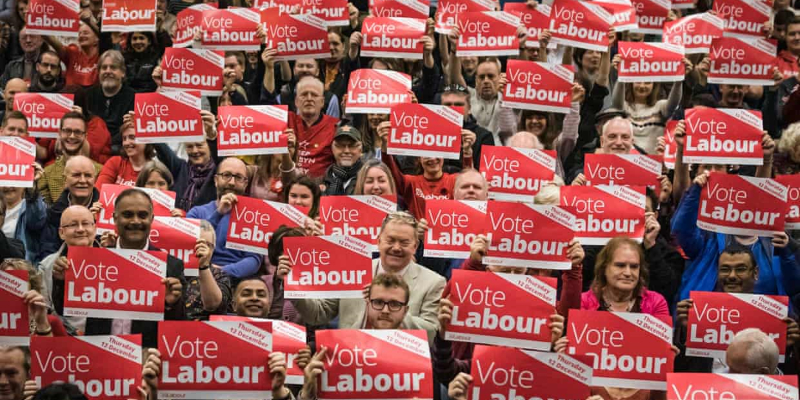Gaby Rubin reports the highs and lows of those who placed themselves within the fringe in Liverpool
Leave aside the ‘Beyond the fringe’ events staged by Labour Left Alliance, Labour Party Marxists and the Socialist Labour Network. There can be no doubt that what characterised most of the fringe events at this year’s conference was utter confusion.
Once again Momentum’s The World Transformed saw the biggest turnout – though the new kid on the block, the Enough is Enough campaign, seemed to have its tentacles everywhere. From its point of view the rally it organised was a total triumph, of course.
The demographics were a little dispiriting: most were far older than the general population average. One meeting after another, whether large (with up to 800 people attending) or small (just 25), had many attendees in their 50s and far above. On the other hand, a large percentage of women attended, with many female chairs or speakers. True, officers of Young Labour spoke, but very few younger comrades were there.
Attitudes towards the Labour Party ranged from “There is no alternative” (Bell Ribeiro-Addy) to “This system cannot be changed. It must be burned down” (Dr Maryam Jameela). Other areas of difference – sometimes expressed in the same meeting – arose over the failure to learn from the Corbyn era, the question of factionalism vs ‘destructive factionalism’ and the need for unity with the right to win elections.
The following hopefully gives a flavour.
Enough is Enough
The 690-seat theatre was packed. The five demands of E!E (its logo) were projected onto the screen of the stage: 1, a real pay rise; 2, slash energy bills; 3, end food poverty; 4, decent homes for all; 5, tax the rich.
Dave Ward, general secretary of the Communication Workers Union – which seems to be guiding things behind the scenes – laid down the parameters. E!E is not positioning itself as a political party, it wants to build a social movement around a new political consensus to challenge the outrageous inequalities of today’s UK.
Speeches followed on hunger, along with some supposedly useful information, ie, there are more food banks than there are McDonalds in Liverpool – which most people probably already knew, since a good portion were clearly Liverpudlians.
Zara Sultana MP said that, where workers were on strike, she would be on the picket line – and that was what every Labour politician should be doing. Fire Brigades Union leader Matt Wrack added: “If you’ve built your career on 100 years of struggle, damn right you should be on the picket line.” In another meeting he bravely quoted Karl Liebknecht saying “the main enemy is at home”, and tellingly added that “Putin protects his oligarchs”, but “who protects the oligarchs here”.
Local MP Ian Byrne called for “collective solidarity” (a concept never defined) to solve food problems. Mick Lynch of the Rail, Maritime and Transport Workers, when heckled, said he did not care who the leader of the Labour Party was: “We have to return to the foundation of our movement and win the argument for socialism for our class.” Fighting words, but devoid of serious politics.
JVL
Just over 50 brave souls attended the meeting organised by Jewish Voice for Labour, and the majority were certainly on the elder end of the age spectrum. JVL was, of course, formed by Jews in the Labour Party to oppose the ‘anti-Semitism’ big lie. Although its speakers did not explicitly say they were anti-Zionist, they were very clear that anti-Zionism is not anti-Semitism.
Naomi Wimborne-Idrissi, recently elected to the Labour national executive – and then predictably suspended just before the conference – asked the audience to raise their hands if they had also had “the letter” from the Labour bureaucracy. Fully half raised their hands. One comrade had been told that, in order to be allowed back in the party, he would have to take a course in anti-Semitism. He was not sure he was going to comply!
Comrade Naomi reported that there had been a whole number of recent suspensions and expulsions, while a number of CLPs had been refused conference credentials. Democracy had been “thrown out of the window”, she rightly said.
Labour for labour
Three hundred attended this meeting. The chair began by saying that Starmer needed to be convinced to back the unions or how could we win the next election? Rightwing Labour governments lose votes – we have to act left to win votes and elections. What is more, “Not everything that New Labour did was bad. Saying that would be stupid.” In contrast, an FBU speaker said “I wouldn’t want him [Starmer] on an FBU picket line.”
John McDonnell labelled the politics of Truss and Kwarteng as “morbid pathology”, adding that “We are in the death throes of neoliberalism.” We need to “take down the Tories”, but Labour can only win if it has a “radical transformation” programme. Truly, profoundly, stupid.
The spokeswoman from the Young Labour national committee wanted everyone to become engaged in a trade union, which would then be able to put pressure on Labour. Andrea Egan, Unison president, felt that you “had to be in the party to change it”. Dawn Butler MP, for her part, claimed that she wanted to see Starmer in No10 because that would mean we had a Labour government! Well, what a lazar mind.
Act on Forde
The first speaker was Alex Nunns, author of the upcoming Sabotage: the inside hit job that brought down Jeremy Corbyn. The comrade correctly maintained that, contrary to the media narrative, Corbyn was not soft on the anti-Zionism equals ant-Semitism witch-hunt – he actually accentuated suspensions and expulsions.
Next Steve Howell, former Straight Leftist and former Corbyn aide, complained that they were not factional: they had “played by the rules”. Next time we need to be meaner towards the right because we can’t expect them to play nice. What a pratt.
Len McCluskey, former Unite general secretary, elicited rapturous applause when he stated that Jeremy would have formed a minority government in 2017, if funds had not been siphoned off by the right. Then he would have forced another general election by provoking the Liberal Democrats and Scottish National Party to vote down the queen’s speech and budget, after which Labour would have won the general election. What a very, very, cunning plan! The fact that the party’s MPs had voted 172-40 for no confidence in Corbyn would apparently have meant nothing.
The meeting took a different turn when the expelled former Labour parliamentary candidate, Pamela Fitzpatrick, spoke. She explained the details of her unjust treatment, but revealed a degree of naivety often present on the left – “If they are like this now, how will they behave if they get to run MI5?” she asked – clearly oblivious to the deep state’s involvement in the operation to bring down Corbyn. She then set the cat among the pigeons by calling for the trade unions to break with Labour and set up a new party. She was joined by blocked Liverpool mayoral candidate Anna Rothery, who went one step further, suggesting that Corbyn should be the leader of such a Labour Party mark two.
She said: “I didn’t leave the Labour Party – the Labour Party left me.” Labour had to bring the party together. “We wanted unity with the right, but they want to get rid of us.”
Jeremy Corbyn himself was the final speaker. In an emotional contribution he told us: “I personally underestimated the cultural hegemony [of the Labour Party staff]”. He also felt the hierarchy had not been fair (as if this was possible). But, of course, he received a resounding standing ovation.
Strikes back
This Momentum meeting had 700-800 people attending, but there were no seats! People either remained standing or sat on the floor – making the whole meeting a fire hazard. Kate Dove, Momentum co-chair, apparently felt that the current defensive strike wave means that “the flame of socialism is burning bright”, while Mick Lynch argued: “We can’t have a division.” We can’t get rid of the right – we have to steer them to do our bidding, apparently.
Ireland
This meeting, ‘Ireland and the British state’, was designed to point out the acute ignorance of the British left on the history of Ireland and its struggles against British imperialism. It was presented by a “trade union based” organisation called Trademark Belfast, one of whose functions is political education, but which is deliberately otherwise hard to categorise (it is promoted by the Rosa Luxemburg foundation). But, in fact, it appears to be a front for the ‘official communists’ in Ireland. Surely obvious.
Its comrades, not least Maeve McDaid, presented a quick overview of the struggle against British colonialism up to the present day, not falling into the trope of green versus orange “fanatics”. They stressed the complicity of the Labour Party in British imperialism, and noted that even now Keir Starmer has spoken against a united Ireland and for Britain keeping the Six Counties.
StWC
This meeting, ‘We need to talk about Nato’, was presented by the Stop the War Coalition and, unusually, most attendees were under 30. The title of the meeting referred to Starmer’s edict that during the Ukraine war Labour MPs are not allowed to question the role of Nato, effectively silencing any anti-war MPs. Those spineless left Labour MPs who signed the StWC declaration were forced to withdraw their signature or face losing the Labour whip.
Shelly Asquith, StWC chair, outlined Nato’s record of bloody interventions around the world, and pointed out how wars provide huge profits for arms manufacturers. She introduced four speakers.
First, Lindsey German. She drew attention to Nato’s requirement for all member states to increase their defence budgets. She explained Nato’s formation in 1949 by the US and its allies in western Europe to coordinate their military activity in the cold war against the Soviet Union. With both sides armed with nuclear weapons, a balance of terror prevailed, which ended with the collapse of the Soviet Union in 1991. Instead of abolishing itself, with its mission completed, Nato has expanded, she said, drawing in more members in eastern Europe, and intervening in conflicts around the world. Although not a member, Ukraine has received huge military assistance from Nato. Comrade German asserted that neither side was ready to seek a peaceful settlement.
Mohammad Asif, from the Glasgow-based Afghan Human Rights Foundation, covered the experiences of Afghanistan, where Nato intervention had resulted in an extended war, only to end in its withdrawal, with the country handed back to the terror of the Taliban. His talk was at times incoherent – he seemed to want a successful western intervention.
Matt Kennard then spoke from Declassified UK, the radical online media organisation that specialises in investigating Britain’s military and intelligence. He explained how Putin became leader with the support of the west, and became a “close friend” of Tony Blair. But, when Putin stopped doing as he was told, Nato turned its guns against Russia. He pointed out that 90% of Nato is made up by the US, and that US hegemony ensures members of Nato subordinate themselves to American foreign policy. In his view there are internal tensions within Nato that render it fragile, and it could easily collapse.
Andrew Murray, StWC chair, and also a returned member of the Morning Star’s CPB, having entered the Labour Party under Jeremy Corbyn’s leadership, explained how Starmer’s edict banning discussion of Nato was preventing all debate on the war within the party. He said Labour members needed to take on not just the Tories, but Starmer too. Instead of the current pro-imperialist foreign policy, Labour need to return to the fight for peace – to the social pacifism promoted by Corbyn.
When the meeting opened to the floor the fireworks began. The first speaker – from Poland – asked why there was no speaker from Ukraine on the panel. In a long, emotional contribution, she described her experiences of the war, and why she supported Nato’s arming of Ukraine.
The applause at the end of her contribution showed that at least one third of the audience supported Nato’s involvement. And it got worse – Matt Kennard replied that he too thought it was in order to arm Ukraine.
Despite the best efforts of Lindsey German and Andrew Murray to salvage the StWC position, the pro-war lobby dominated. The organisers must have gone away wondering how they had so badly botched things.
Racism
Ex-Labour NEC member Mish Rahman, speaking at Sunday’s Stand up to Racism event on behalf of Momentum, made a point of confronting the paradox, for SUTR, of the long list of non-white Tory government ministers in a “systemically racist” Britain.
After naming them, Rahman asserted that these “unprincipled careerists” would “sell their grandmother”, and are used as a shield for the racist actions and policies of the Tory government – a cover for the “institutional racism” in British society.
The official anti-racism of official Britain and official Labour seems to be beyond the comprehension of the official Labour left and its SWP promoters and lackies





